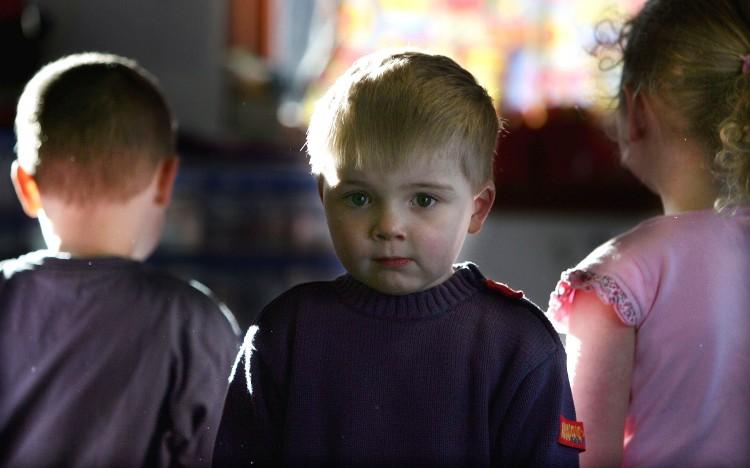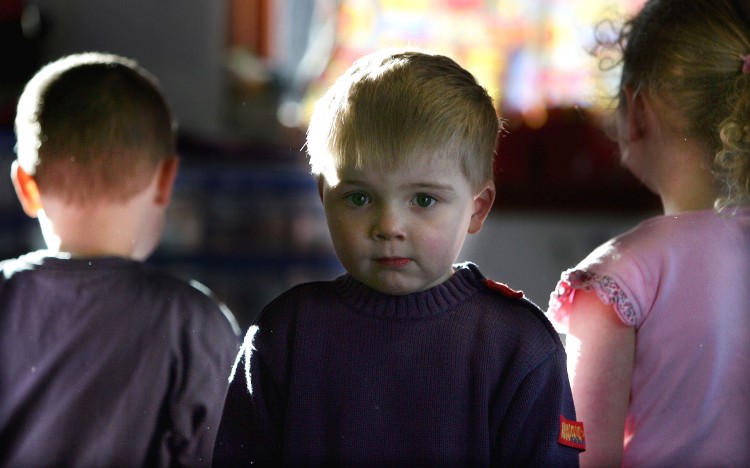DUBLIN: The Irish National Longitudinal Study of Children published a report on Thursday from the study on how families matter for children’s social and emotional well being. The report was launched by the Minister for Children and Youth Affairs, Ms Frances Fitzgerald, TD, at an event in Dublin Castle. While the findings suggest that from 15 to 20 per cent of Irish children have significant emotional or behavioural problems, these numbers are broadly in line with international figures, according to The Irish Times.
‘Growing up in Ireland’ Shows Childrens’ Need for Positive Relationships
The Irish National Longitudinal Study of Children published a report on Thursday from the study on how families matter for children’s social and emotional well being.

Picture of a three-year-old boy attending a private nursery school January 28, 2005 in Glasgow, Scotland. Christopher Furlong/Getty Images
|Updated:






